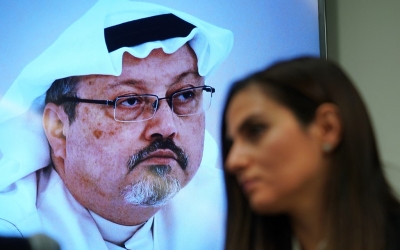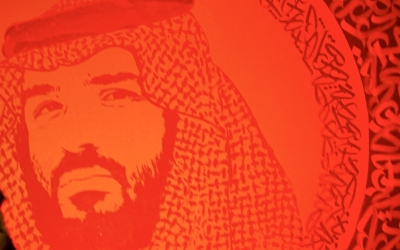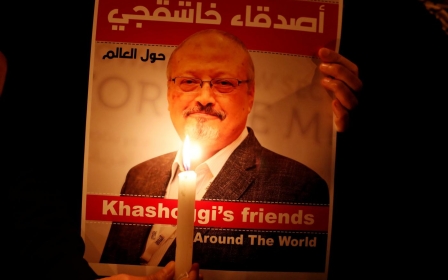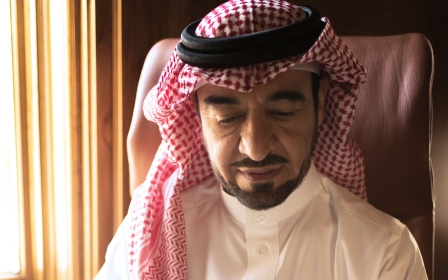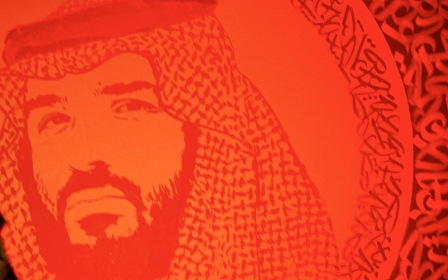Saudi Crown Prince Mohammed bin Salman approved Khashoggi murder, US report says
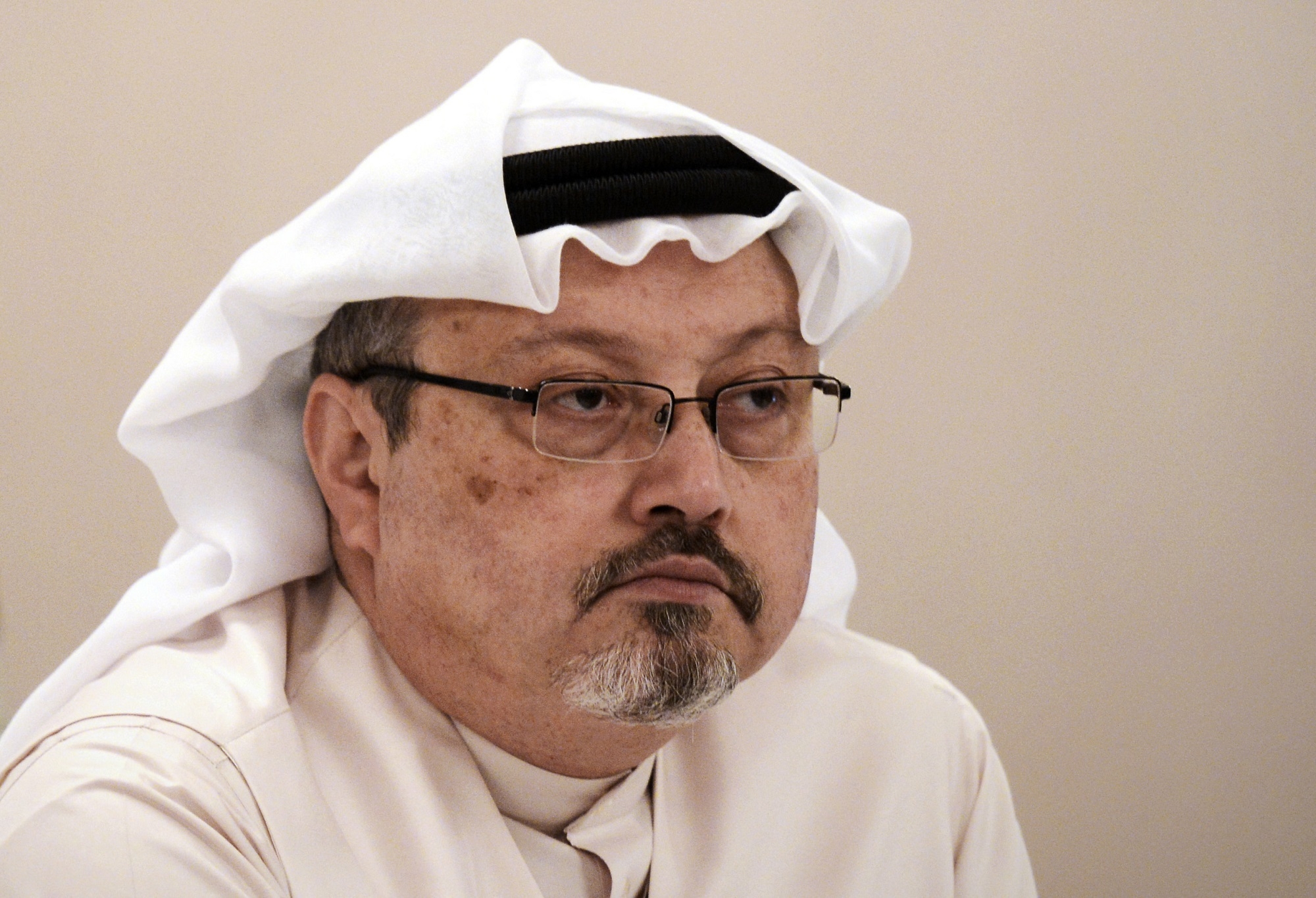
Saudi Crown Prince Mohammed bin Salman is responsible for the killing of Jamal Khashoggi, the US administration has revealed in the summary of a long-awaited report detailing the American intelligence community's findings on the murder.
The report will likely alter US policymakers' ties with Saudi Arabia and the crown prince, known as MBS, particularly. Activists and rights groups were quick to call for US sanctions against bin Salman on Friday.
"We assess that Saudi Arabia's Crown Prince Mohammad bin Salman approved an operation in Istanbul, Turkey to capture or kill Saudi journalist Jamal Khashoggi," the report, a summary of which was released on Friday, said.
President Joe Biden has already suggested that he would forgo the young prince - the de facto ruler of the kingdom - and deal directly with the ageing King Salman.
The report said US intelligence officials concluded that MBS ordered the assassination, based on his control of major decisions in the kingdom.
'Aides were unlikely to question Mohammad bin Salman's orders or undertake sensitive actions without his consent'
- US report
"We base this assessment on the Crown Prince's control of decisionmaking in the Kingdom since 2017, the direct involvement of a key adviser and members of Mohammad bin Salman's protective detail in the operation, and the Crown Prince's support for using violent measures to silence dissidents abroad, including Khashoggi," the US intelligence document said.
The US intelligence assessment added that MBS's aides could not have killed the journalist without the crown prince's blessings.
"At the time of the Khashoggi murder, the Crown Prince probably fostered an environment in which aides were afraid that failure to complete assigned tasks might result in him firing or arresting them," it said.
"This suggests that the aides were unlikely to question Mohammad bin Salman's orders or undertake sensitive actions without his consent."
US-Saudi relations
Biden spoke on the phone to King Salman less than 24 hours before releasing the report, but a White House statement describing their conversation did not mention Khashoggi.
"The President told King Salman he would work to make the bilateral relationship as strong and transparent as possible," it said. "The two leaders affirmed the historic nature of the relationship and agreed to work together on mutual issues of concern and interest.
Khashoggi, a former Saudi government insider, became a democracy advocate and an influential critic of the crown prince before his death in October 2018.
Saudi government agents killed and dismembered him at the kingdom's consulate in Istanbul. Saudi officials insisted for 17 days after the murder that Khashoggi had left the building alive before eventually acknowledging that he was killed. Riyadh, however, still says the assassination was an unauthorised operation that occurred without the approval of top leaders.
Khashoggi was a US resident who wrote for the Washington Post and Middle East Eye. His murder caused a massive backlash from legislators of both major parties, who demanded accountability for the killing.
But former President Donald Trump moved to shield Saudi leaders from the brewing wrath in Washington, often citing Riyadh's geopolitical role in countering Iran and arms deals with US weapons manufacturers.
Late in 2019, Congress passed a law ordering the US intelligence chief to submit to lawmakers within 30 days an unclassified report outlining "the advance knowledge and role" of any Saudi official in "the directing, ordering, or tampering of evidence in the killing of Khashoggi".
The Trump administration simply ignored the legally-binding request. It released a statement to Congress arguing that releasing such a report would compromise the US intelligence community's sources and methods.
How the Saudi story changed on Jamal Khashoggi's killing
+ Show - Hide4 October 2018: The consulate-general of Saudi Arabia in Istanbul says it is "following up" on the disappearance of Khashoggi, coordinating with Turkish law enforcement on his whereabouts "after he left the consulate building".
5 October 2018: Saudi Crown Prince Mohammed bin Salman, speaking to Bloomberg: "He's a Saudi citizen and we are very keen to know what happened to him. And we will continue our dialogue with the Turkish government to see what happened to Jamal there."
8 October 2018: Saudi ambassador to the US tells the Washington Post it would be "impossible" for Khashoggi to have been killed by consulate staff and for his death to have been covered up without them being aware of it.
19 October 2018: Saudi Arabia admits on state TV that Khashoggi did not leave the consulate as originally claimed, but says he was killed in a “fistfight” in the building.
21 October 2018: An anonymous Saudi official tells Reuters that the team of 15 Saudi nationals sent to confront Khashoggi in the consulate had threatened him with being drugged and abducted and then killed him with a chokehold when he resisted. Other Saudi officials confirm the chokehold account.
Saudi foreign minister Adel al-Jubeir, speaking to Fox News: "This was an operation that was a rogue operation. This was an operation where individuals ended up exceeding the authorities and responsibilities they had. They made a mistake when they killed Jamal Khashoggi in the consulate, and they tried to cover up for it."
25 October 2018: Saudi prosecutor says the killing of Khashoggi was "premeditated" based on Turkish authorities' evidence and not an accident as they previously suggested.
15 November 2018: After investigations carried out by the Saudi public prosecutor in Istanbul, his office says that 11 Saudi nationals have been indicted and charged with murdering Khashoggi and that five of those will face the death penalty.
"The head of the negotiation team concluded that it would not be possible to transfer the victim by force to the safe location in case the negotiations with him to return failed. The head of the negotiation team decided to murder the victim if the negotiations failed. The investigation concluded that the incident resulted in murder," says the prosecutor, adding that the head of the mission had written a "false report" that Khashoggi had left the building.
29 September 2019: Mohammed bin Salman on whether he ordered Khashoggi's killing: "Absolutely not. This was a heinous crime. But I take full responsibility as a leader in Saudi Arabia, especially since it was committed by individuals working for the Saudi government."
It has been long assumed that an operation of the magnitude of the Khashoggi assassination - where the hit team used Saudi state and diplomatic resources - could not have happened without MBS's approval.
US media reports indicated late in 2018 that the CIA concluded MBS is responsible for the murder. Legislators who received classified intelligence briefings on the matter have also come to the same conclusion.
"If the crown prince went in front of a jury, he would be convicted in 30 minutes," then-Republican Senator Bob Corker told reporters in December 2018, after a meeting with intelligence officials behind closed doors.
Still, advocates for justice for the slain journalist have long maintained that releasing the US intelligence report to the public is an important step towards ensuring accountability for the killing.
Agnes Callamard, the UN rapporteur on extrajudicial killings who found in a 2019 probe that the murder was a state-sanctioned crime, has been calling on Washington to share its findings on the killing.
"From an international legal standpoint and an international political standpoint, the public release of a document with the CIA assessment - a document that could be probed by others - will make it far more difficult for the rest of the world, particularly governments, to ignore Mohammed bin Salman's personal involvement in the operation that led to the killing and dismemberment of Jamal Khashoggi," Callamard told MEE last year.
The crown prince has personally denied involvement in the assassination. Asked whether he ordered the operation, bin Salman told CBS News in 2019: "Absolutely not."
The Saudi foreign ministry rebuked the US report's findings on Friday, calling it "negative, false and unacceptable".
"The ministry reiterates what was previously announced by the relevant authorities in the Kingdom, that this was an abhorrent crime and a flagrant violation of the Kingdom’s laws and values," it said in a statement.
"This crime was committed by a group of individuals that have transgressed all pertinent regulations and authorities of the agencies where they were employed."
Calls for sanctions
During her confirmation hearing in January, director of national intelligence Avril Haines committed to releasing the report.
The unclassified document comes as the Biden administration says it is reassessing US-Saudi relations. On Wednesday, White House spokeswoman Jen Psaki reaffirmed the US president will bypass MBS when dealing with Saudi Arabia, and correspond with King Salman instead - "counterpart to counterpart".
Early in February, Biden ended US support for Saudi "offensive operations" in Yemen, but reaffirmed Washington's commitment to the kingdom's security.
Advocacy and rights groups called for consequences for Riyadh and MBS personally after the release of the report.
On Friday, the UN's Callamard urged Washington to "take the lead in ensuring accountability" for the murder and setting international standards to prevent similar killings from happening in the future.
Late in 2018, Washington announced sanctions against 17 Saudi individuals, including Saud al-Qahtani, a senior adviser to the crown prince, for "having a role in the killing". The sanctions froze the suspects' assets and imposed visa bans on them.
At the time, critics of the previous administration said the measures were not adequate because they did not punish the officials who ordered the assassination.
Callamard called for similar measures to be imposed against MBS.
"The United States Government should impose sanctions against the Crown Prince, as it has done for the other perpetrators - targeting his personal assets but also his international engagements," Callamard said.
"Banishing those responsible for ordering the execution of Jamal Khashoggi from the international stage is an important step towards justice and key to sending the strongest message possible to would-be perpetrators the world over."
Democracy for the Arab World Now (DAWN), a rights group envisioned by Khashoggi that was fully established last year, also urged Biden to impose sanctions on MBS.
"The DNI’s report today confirms what we have long known to be true: Mohammed Bin Salman ordered the execution of Jamal Khashoggi," Sarah Leah Whitson, executive director of DAWN said in a statement.
"President Biden should now fulfill his promise to hold MBS accountable for this murder by, at minimum, imposing the same sanctions on him as those imposed on his underling culprits and ending the weapons transfers to Saudi Arabia that would be controlled by an unelected, brutal murderer."
Democratic Congressman Adam Schiff, chair of the House Intelligence Committee who has been pushing for making the report public, vowed on Friday to continue to push for justice for the murder.
"The highest levels of the Saudi government, including Crown Prince Mohammed bin Salman, are responsible for the brutal murder of Jamal Khashoggi," Schiff wrote on Twitter.
"There must be accountability, and we will continue to press for it."
Middle East Eye propose une couverture et une analyse indépendantes et incomparables du Moyen-Orient, de l’Afrique du Nord et d’autres régions du monde. Pour en savoir plus sur la reprise de ce contenu et les frais qui s’appliquent, veuillez remplir ce formulaire [en anglais]. Pour en savoir plus sur MEE, cliquez ici [en anglais].


